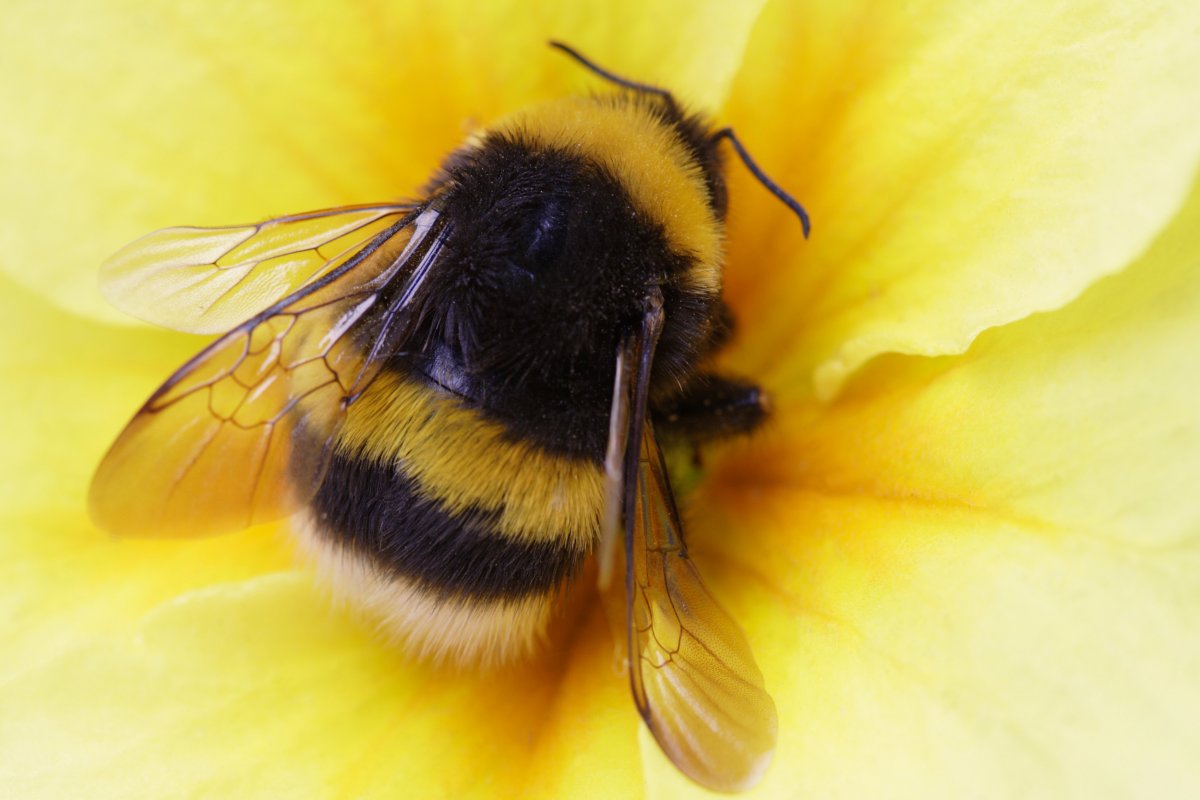A study has revealed that bumble bees appear to give up sleep in order to care for their hive's young, even if the offspring isn't their own.
Bumble bees studied by scientists in Israel slept less in order to tend to larvae, as well as pupae that don't need feeding.
Almost all animals sleep. Losing out on it is not only detrimental to how well daily tasks can be carried out, but also to health and survival, the researchers explained in the journal Current Biology. But sometimes skipping shut-eye can be beneficial if it frees up time for an animal to migrate, gather food, or stay safe from predators.
For instance, as bleary-eyed parents can attest, human mothers sleep less and wake intermittently when they are near their babies, while rat mothers are woken up during the period when their pups drink their milk. These examples of deprivation are in response to a baby's behavior.
To find out more about the effects of offspring on bees, scientists filmed the insects and watched how they acted in a series of experiments. They compared how their sleeping habits changed in the presence of different combinations of male and female pupae and larvae.
Curiously, bee pupa—the stage of the development after larvae, where the eyes, wings and legs mature—do not move, make noise, and don't need to be fed. Yet the bees seemed to pass up sleep to care for them. The team also found a lack of sleep was linked with round-the-clock activity and wax-pot building. These activities are typical of mother queens who create nests, they said.
In contrast, the control bees who were not exposed to the brood were found to be more active in the day compared with the carer bees.
When scientists removed the pupa from cocoons, they found some of the bees still lost sleep for a short period. This suggests the infants left behind a substance, such as a pheromone, which affected their sleep.
Taking away the offspring entirely appeared to increase how much the carer bees slept. But the amount was still lower than the control bees, suggesting the insects adjusted to needing less sleep.
What remains unclear is why the brood needed round-the-clock care. The scientists surmised this could help speed up growth, and enable workers to regulate the brood's temperature.
"Bumble bee sleep is incredibly sensitive to the presence of brood," the researchers wrote.
Co-author Guy Bloch, professor of biology at The Hebrew University of Jerusalem told Newsweek: "We spend much of our time asleep, but still we do not know what is the biological function of sleep. Given that nursing bees are active around-the-clock, we suspected that this activity pattern also affects their sleep, and that the evolution of sociality in which some of the bees spend much of their time caring for the young, may be shaped the way their sleep is regulated."
The findings reflect how mysterious sleep is, said Bloch, because deprivation comes at a cost but this study and a few others show "there is profound plasticity" in the behaviour in some animals. Future research should try to reconcile these seemingly opposing lines of evidence, he said.
"We do not know if the brood tending bees pay a cost for reducing the amount of sleep," he said. "Alternatively, it is possible that bees evolved mechanisms allowing them to perform well with less sleep."

Uncommon Knowledge
Newsweek is committed to challenging conventional wisdom and finding connections in the search for common ground.
Newsweek is committed to challenging conventional wisdom and finding connections in the search for common ground.
About the writer
Kashmira Gander is Deputy Science Editor at Newsweek. Her interests include health, gender, LGBTQIA+ issues, human rights, subcultures, music, and lifestyle. Her ... Read more
To read how Newsweek uses AI as a newsroom tool, Click here.








